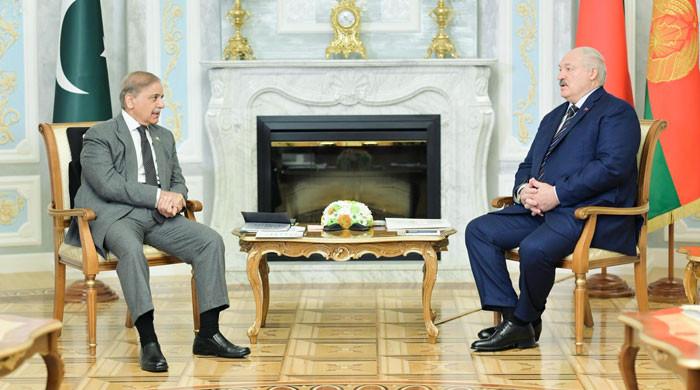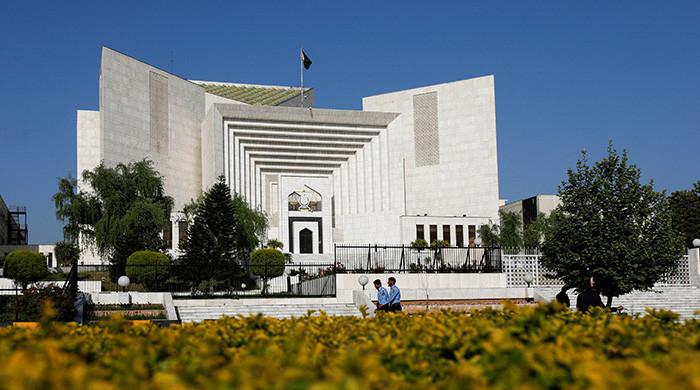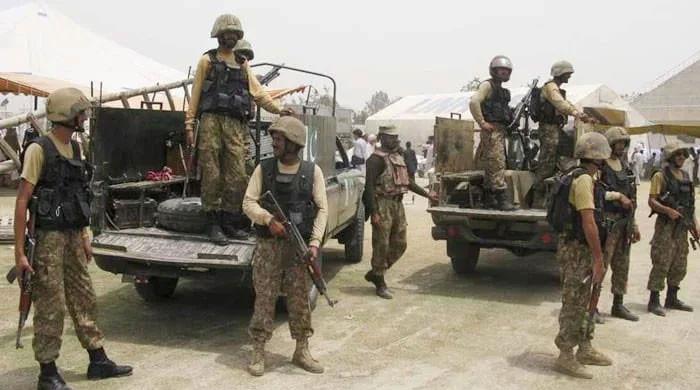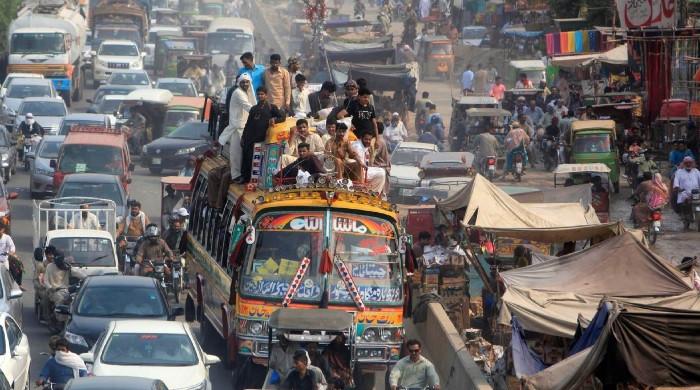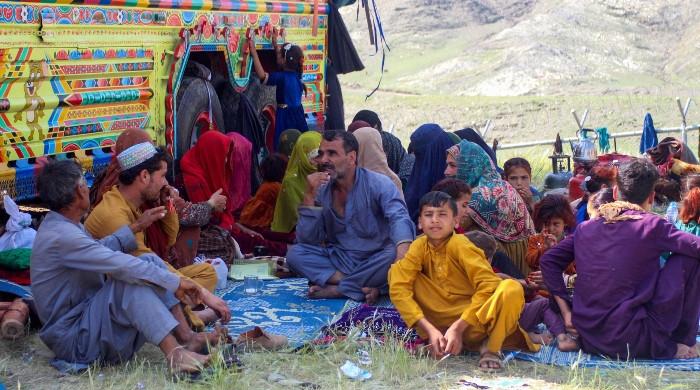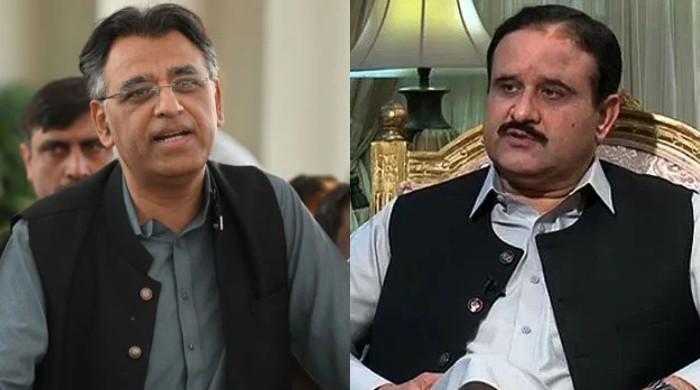Double whammy for Karachiites as scorching heat, power outage add to woes
"Continuous loadshedding in this extremely hot weather has badly affected my mental health," says citizen
May 24, 2024

- Citizens complain of hardships as power outages persist.
- Karachi sweltered at 38.2°C Thursday, 2.4°C above normal.
- KE says non-payment of bills leads to the loadshedding.
KARACHI: There seems to be no respite for the citizens of the port city as rising mercury and power outages make their lives miserable, with the metropolis' electricity company defending its policies to cut the supply of consumers.
Karachi sweltered at 38.2°C, a scorching 2.4°C above normal, with humidity reaching 62% on Thursday. This combination made it feel like a stifling 40°C, according to the Pakistan Meteorological Department (PMD).
The citizens informed Geo that even the exempted areas were facing prolonged unannounced power outages, while the loadshedding period has been increased in others.
"The bill is the same. It is too hot, I can't even express the words to describe how I'm feeling. I have skin allergies, which exacerbate if I can't keep the air conditioner on," Rubina Mirza, a 60-year-old school teacher and a resident of Gulistan-e-Jauhar, told Geo.tv.
A housewife complained that even though she pays the bill, her household faces loadshedding as others, who receive electricity through the same feeder, do not pay their dues.
"The continuous loadshedding in this extremely hot weather has badly affected my mental health. The only thing that comes to my mind all day is, 'there's gonna be a power outage, when will the power be restored'," Sahar Masroor, 40 and a resident of Korangi 6, said.
"I pay my electricity bill on time but I am being punished for the KE's fault to recover dues and overcome power theft. This is not my duty to ensure 100% billing. This is collective punishment. This is not acceptable."
Sindh's ministers have also expressed dismay at the prolonged power outages across the province, with one saying that a case would be lodged against Karachi-Electric (KE) if anyone were to die of heatstroke due to loadshedding.
Residents of Korangi, Orangi Town, Landhi, Gulshan-e-Maymar, Liaquatabad, Mehmoodabad, Manzoor Colony, Sarjani, and New Karachi told Geo News that they were facing loadshedding of more than 12 hours.
In several areas of Keamari, Lyari, Gadap, Quaidabad, and Safoora, the duration of loadshedding has increased to more than 10 hours.
In response, a KE spokesperson said that uninterrupted power is being provided to 71% of the city, while the loadshedding schedule is available on the company's website.
"Where there is non-payment of bills, there is more load shedding," he said, justifying the power utility's policy.
KE, Sindh govt agree to 'work' for Karachi
Separately, a high-level meeting was held today between Sindh government and KE to discuss power supply and loadshedding in Karachi, a statement from the company said.
Sindh government was represented by Energy Minister Nasir Hussain Shah, while K-Electric was represented by its CEO Moonis Alvi along with senior officials and the company's leadership.
During the meeting, it was decided to form a joint committee consisting of the representatives of the Sindh government and K-Electric to address loadshedding and other issues of the city.
"The committee will jointly work on addressing public grievances, ensuring timely bill payments, and develop[ing] strategies to minimise load shedding and ensuring uninterrupted power supply in the city."
KE CEO, while "reiterating the power utility’s commitment to provide complete cooperation to the residents of the city during the heatwave", highlighted that uninterrupted power supply is not possible without payments of bills.
Energy Minister Shah assured that the government would play a role in the payment of over Rs9 billion owed by the government.
Meanwhile, Mirza Ikhtiar Baig suggested formulating a joint strategy to ensure timely payments and prevent electricity theft.





